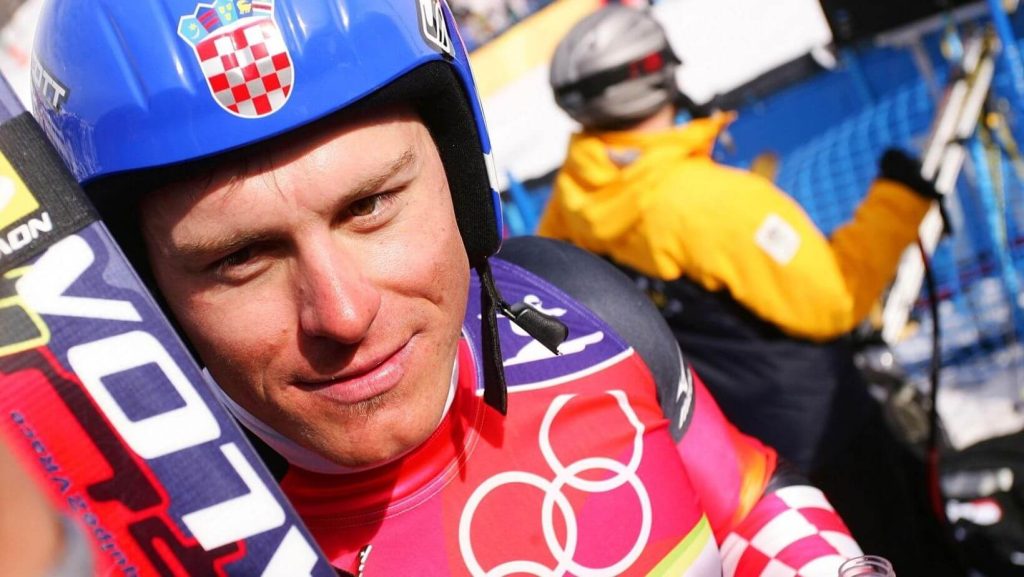The race, which is traditionally run from Europe to South America on coffee traders’ routes and sponsored by the French coffee processor of the same name, will include Kostelić and French partner Calliste Antoine, a sailor who already has two Transatlantic races behind him, reports Vecernji List.
“He was with me at the Rolex Fastnet Race when another participant hit us in the race, so we were forced to finish the race, and the boat was under repair for two months,” said Kostelić in an interview with Vecernji List.
Given that Ivica’s company owns the boat, the situation was even more embarrassing. Fortunately, the boat was insured, so the procedure was similar to that of a road accident.
“My boat was built in 2013 and was successful in racing, it even had a victory on the Transat, but as new designs arrived, it lost its way. A new boat costs between 700 and 800 thousand euros, which I, of course, could not afford and I tried to find the best possible ratio between price and quality. As a competitor, I’m sorry I can’t have the latest boat. That’s the reality, at least until I find a sponsor for the boat because I’m not a tycoon.”
How much did Ivica pay for his used boat?
“No comment. It’s like asking me, “When was the last time you slept with a woman?”
Sponsors, however, are desirable.
“For Croatian conditions, I can be satisfied because I cannot compare with these French budgets, which are several times larger than mine. My main sponsors are ACI, IT agency Five and the Croatian National Tourist Board, whose slogan is “Croatia Full of Life”, and on this occasion, it is also the name of my boat.”
What does preparation entail for a race like this?
“I was looking to come to the start in good physical condition, and I also studied the races so far, which routes have been sailed in previous editions of the race, which is held every other year. Of course, it is also important that the boat is in shape.”
So, what kind of vessel will Ivica sail with for 20 days across the Atlantic, more than 7,100 kilometers from Le Havre to the Caribbean island of Martinique?
“A total of 80 boats will participate in several classes, and the most numerous are in our Class 40. All boats must be the same size, slightly more than 12 meters long, four and a half meters wide, with a draft of three meters and a 19-meter high mast. My boat is the third generation, and those who have the fifth and sixth generation will also compete, so some have a rounded bow that provides the possibility of longer gliding. With the wind sideways, such a boat gains a lot on stability and is therefore much stronger.”
The race always starts in Europe in early November, so there will be no ideal weather conditions.
“A lot depends on how unstable the weather is in the North Atlantic and how strong the Azores anticyclone is, which is weakening and moving at this time of year. As winter approaches, so do these systems from the North Atlantic, Greenland, and Labrador, then south as winter comes to Europe, so it’s just a matter of how strong those systems will be.”
Ivica and Calliste’s mentality must remain strong because this is not a stage competition but a race with no breaks.
“God forbid we have to stop because that would mean something broke. And it must not break even among the partners on the boat. Character alignment is critical here. If that’s not the case, then it’s tough on the boat.”
What about rest and sleep?
“There are no days or nights on board. It is the wind that decides what time to rest. So you sleep whenever you can. We don’t have a fixed shift, and it mostly depends on how someone feels at some point. We do maneuvers and sail changes together, and when you have free time, then you sleep. And sleep is always intermittent, with you always waking up from the light sleep phase, never from the deep sleep phase. And that means sleeping for either 40 minutes, an hour and a half, or three hours. My sleep is mostly 40 minutes, and if you’re far away, on the high seas, then you can afford a longer sleep.”
For us non-sailing specialists, the very thought of the open sea is terrifying.
“When I’m away from the mainland, I have a good feeling. For me, it is freedom. You are on your boat like on your planet. Indeed, you may not feel as safe as on land, but there’s not all that human filth either, no crowds, no politics.”
What about the waves that can capsize the boats?
“These boats are made to be able to sail in such conditions. It’s not comfortable, but you have to put up with it and so do the 15-foot waves. After all, Class 40 sailed in the southern ocean, and there have been no sunken ships so far. Of course, there is always the possibility that you will find yourself in a storm, but the chances are higher that everything will be fine than that something will go wrong. After all, there is a lot of safety equipment on board, which is very strictly inspected before the race to survive in the event of an accident.”
What are the warning systems if someone is in trouble?
“In the first place, it is a transponder that belongs to the ship and is activated in case of emergency, so the rescue service is notified via a satellite that you are in trouble. Then there is an automatic identification system that sends a signal to searchers. So you have him on you as a personal locator if, God forbid, you find yourself in the sea. There’s also a VHF radio through which you can call for help, but it doesn’t have much range.”
How does Ivica’s family feel?
“All this is not harmless, and they will certainly be worried, and that is normal, but for me, this is the fourth season in offshore sailing, and I am not a beginner. After all, people were crossing the ocean in all sorts of boats; it’s not some big ghost. It’s like skiing. You must not be afraid, and you must go to the most dangerous descent with faith.”
Is the Transatlantic a bigger adventure than skiing across Greenland?
“It’s hard for me to compare. It wasn’t racing, and this is, and that’s a big difference. But, on the other hand, for me, extreme cold and winter conditions are generally the most difficult conditions a person can find themselves in. Because then even the most ordinary things become tough.”
And while sailing across the Atlantic, that shouldn’t be the case.
“We will have a fairly large temperature range here. It is already autumn here, and it can be more than 30 degrees in Martinique. So the first part of the route, we will be dressed like bears, and when we find ourselves in trade winds, then we will be in shorts, I hope.”
Given 20 days at sea, the food supply is crucial.
“Our stocks are dominated by dehydrated food, which is not very tasty, so we bring something to sweeten our lives, which is very important for the morale of the crew. In that name, we carry sausages, some canned food, some biscuits, chocolate. Bacon and garlic always go with me, which is a strong antibiotic, and that’s what you need on board to keep your immunity at a high level. For the soul, I also brought some kulen.”
The race starts on Sunday at 1:27 pm and will be covered by the media, especially athletes like Kostelić, world aces in a previous career.
“As far as I know, three athletes with Olympic medals will participate, as well as some world champions in non-Olympic sports. There is also an excellent friend of mine, the world champion in freeskiing Aurelien Ducroz, who has a boat of the last generation and is one of the favorites. As far as I know, there is also the Olympic pole vault winner from Atlanta, Jean Galfione, and the French sailing Olympian from Rio Jeremie Mion.”
Particular interest was aroused thanks to the four-time silver Olympian and winner of the Ski World Cup, Ivica Kostelić.
“The organizers will offer the media daily reports, and we must send a certain number of reports to that regatta media team. In addition, we will have to send videos and photos that they will put online.”
To learn more about sport in Croatia, CLICK HERE.








